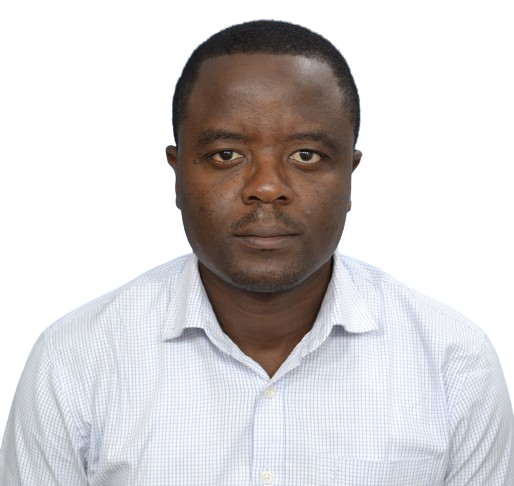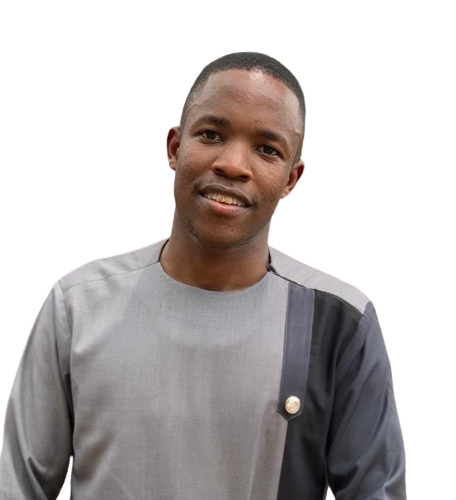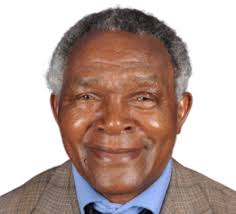
Mr. Salim Shaaban is a Director General at the Forest and Beekeeping Services (FBS). With a Bachelor of Science degree in Forestry from the Sokoine University of Agriculture.
Before joining FBS, Salim gained valuable experience working at the Forest Development Trust (FDT) as a forest research technician. Through his dedication and expertise, he quickly progressed to the position of Senior Officer, Research and Coordination within the organization. In this role, he played a pivotal part in supporting the Trust’s operations by overseeing Tree Improvement Research and Development activities. Salim’s responsibilities included coordinating trial establishment, conducting tree seed selection, and implementing marking procedures to enhance the quality and productivity of the forest resources.
With his extensive background in forestry and research, Salim’s contributions to the Forest Development Trust were instrumental in driving sustainable forest management practices and promoting the growth and preservation of tree species. His meticulous approach and commitment to excellence have enabled him to make significant contributions to the organization’s overall mission.
If you would like to get in touch with Salim, you can reach him at salim.shaaban@forestbeekeeping.or.tz.

Japhet holds a BSc. in Forestry from the Sokoine University of Agriculture. He is a young professional with international ecosystems management and conservation exposure. He participated in an International Students Summit on Food, Agriculture and Environment as a presenter, presenting an abstract titled “Indigenous Knowledge, Innovation and Utilization Technologies of Bamboo”. He also attended the field course in ecology and evolution of East Africa, detailing the Rainforest and savanna ecosystems with particular focus on East Africa, Biodiversity surveys, monitoring and conservation, Morphological and biological characteristics of the major ‘key’ groups of animals and plants in the East African rainforest and savanna ecosystems. The course was offered by the Natural History Museum of Denmark, Faculty of Science, University of Copenhagen, and was attended by Danish summer school Professors, students and local teachers at Udzungwa Ecological Monitoring Centre. He is currently pursuing MSc. Ecosystems Science and Management at Sokoine University of Agriculture.
Japhet worked on many projects such as the Feasibility of a cost-effective carbon sequestration project where the main objectives were to conduct both the socio-economic baseline survey to the beneficiary villages around ISUATF with the use of effective data collection tool (ODK Collect) and the preliminary biophysical survey (Forest Inventory) to the tree vegetations found at ISUATF (Both natural forest/woodland and tree plantations). He also worked as the Conservation supervisor at Kimboza Forest under the ZGAP project.
Email address: japhet.safiel@forestbeekeeping.co.tz

Charles Ng’atigwa is a Chief Conservation Manager of the Forest and Beekeeping Services (FBS) Tanzania. Before joining the FBS, Mr. Ng’atigwa was a conservation manager at the Tanzania Forestry Services Agency (TFS). He is both a forestry and beekeeping professional, holding a Diploma in Beekeeping, a BSc in Forestry, and an MSc in Environmental Forestry. He has a wide range of practical experience from teaching at the Tabora Beekeeping Training College to landscape restoration practices with livelihood approaches, using various agroforestry technologies, tree planting, natural regeneration, beekeeping, and water resources management.
Mr. Ng’atigwa worked extensively in community engagement using participatory tools like Participatory Action Research, Participatory Video, and Interactive Theatre, live and pre-recorded radio debates for promoting dialogue between communities and policymakers where there were “policy and practice” conflicts in forestry and beekeeping resources management. Others include Policy Formulation, planning, conducting strategic qualitative on-farm field research, training, and strategic extension, campaigns, advocacy, and capacity building for forestry and beekeeping stakeholders.
Mr. Ng’atigwa is a multi-media expert who has produced various video and audio documentaries on forestry, beekeeping, and water resources for case study, research, training, extension, and advocacy. He has also worked extensively on Integrated Fire Management (IFM) with the FireWise approach and Community Based Fire Management (CBFiM) focusing on the elements of IFM. He has also worked in the bioenergy sector including charcoal and briquettes
Email address: charles.nga’tigwa@forestbeekeeping.co.tz

I am a Technical Advisor of the Forest and Beekeeping Services (FBS) Tanzania and lead research work that spearheads understanding the science of components integration in the management and conservation of tropical ecosystems. I have been competitively awarded funds worth more than US$ 1,900,000.
Besides being a staunch advocate and active promoter of forest ecosystem establishment, conservation, and protection as the means of climate change mitigation and amelioration, I am an ardent spear-header of Agroforestry research and practice as the only most effective solution to resources management, climate change regulation and mitigation and assurer of food security.
I was Head of the Department of Forest Biology (the now Department of Ecosystems and Conservation) between 1990 and 1996 while working with the Sokoine University of Agriculture and, at various periods headed various Faculty (now College) and Departmental Committees e.g. Undergraduate, Postgraduate and Research Committees, thereby providing strategic leadership in Forestry, Wildlife, and Tourism, particularly with regards to ensuring the development of quality student curricula and assessment strategies.
Email address: luther.lulandala@forestbeekeeping.co.tz

Professor Salim M.S. Maliondo is an extraordinary researcher in forestry and conservation, with a notable career spanning several decades. As a Technical Advisor of the Forest and Beekeeping Services (FBS) in Tanzania, he plays a pivotal role in advancing the understanding of tropical ecosystem management and conservation through his research initiatives.
Before his current role, Professor Maldonado served as the Head of the Department of Forest Biology at Sokoine University of Agriculture from 1996 to 2002. During his tenure, he contributed significantly to the academic and research landscape of the university, overseeing various programs and initiatives aimed at fostering innovation and excellence in forest biology.
At the forefront of his expertise lies a diverse array of research interests, reflecting his profound commitment to addressing critical issues in soil fertility, plant nutrition, silviculture, agroforestry, climate-smart agriculture, and landscape restoration. Through his leadership, Professor Maliondo has spearheaded groundbreaking research endeavors that have garnered recognition both nationally and internationally.
With his wealth of experience, expertise, and dedication to excellence, Professor Salim M.S. Maliondo continues to be a driving force in shaping the future of forestry and conservation efforts in Tanzania and beyond. His contributions serve as a testament to his unwavering commitment to environmental stewardship and the advancement of science for the betterment of society.
Email address: salim.maliondo@forestbeekeeping.co.tz

Dr. Felician K. Kilahama is a Technical Advisor at the Forest and Beekeeping Services (FBS). Before joining FBS, Dr. Kilahama served as the Forestry and Beekeeping Division Director within Tanzania’s Ministry of Natural Resources and Tourism (MNRT) between 2007 to 2012. Also, Dr. Kilahama served as Chairperson of the Committee on Forestry (COFO) at the FAO from 2012 to 2014. He also served as Chairman of the TAFORI Board of Directors from 2016 to 2022. His tenure in this critical role highlighted his significant contributions to forestry management, conservation, and sustainable utilization of natural resources in Tanzania.
Dr. Kilahama’s leadership was instrumental in advancing the country’s forestry and beekeeping sectors, which are vital to both the environment and the economy. His work encompassed a broad range of activities aimed at promoting sustainable forest management practices, enhancing biodiversity conservation, and supporting community-based forest management initiatives. These efforts were crucial in addressing deforestation and forest degradation, which are significant challenges in Tanzania.
One of Dr. Kilahama’s notable achievements was his advocacy for community involvement in forest management. Recognizing the importance of local communities in conservation efforts, he promoted participatory forest management (PFM) approaches. This involved empowering communities to take an active role in managing forest resources, thereby ensuring that conservation efforts were sustainable and beneficial to local livelihoods.
In addition to his work in forestry, Dr. Kilahama also championed the beekeeping sector, recognizing its potential to contribute to rural development and poverty alleviation. Under his direction, the Forestry and Beekeeping Division supported various initiatives to improve beekeeping practices, enhance honey production, and access markets for bee products. This not only provided economic benefits to rural communities but also promoted the conservation of forests, as healthy forest ecosystems are crucial for successful beekeeping.
Dr. Kilahama’s impact extended beyond national borders. He actively participated in regional and international forums, sharing Tanzania’s experiences and learning from other countries’ best practices in forestry and conservation. His involvement in these platforms helped to position Tanzania as a leader in sustainable forestry and conservation in Africa.
Email address: felician.kilahama@forestbeekeeping.co.tz